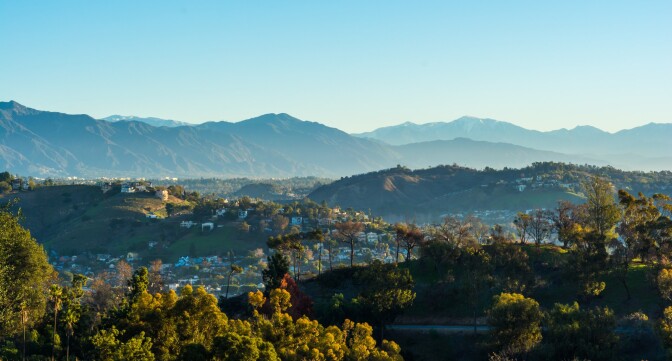This story is free to read because readers choose to support LAist. If you find value in independent local reporting, make a donation to power our newsroom today.
In The San Gabriel Valley, A Sudden Opening To Represent The First Asian-Majority Assembly District In California

For the next four months, no one will fill the seat for the 49th Assembly District in the west San Gabriel Valley.
The previous assemblymember, Ed Chau, resigned Dec. 10, having been tapped weeks earlier by Governor Newsom to be a judge with the L.A. County Superior Court. His replacement won’t be picked until a special election on April 19.
Until then, constituents in the 49th seeking help can use a comment form.
Several candidates, meanwhile, have already lined up to represent the state’s first Asian-majority legislative district by seizing on an earlier-than-expected opening.
Chau, a Monterey Park Democrat who won his first Assembly election in 2012 and easily defended his seat in subsequent challenges, would not have been termed out until 2024.
So far, those who have launched campaigns to succeed him are: Mike Fong, a Los Angeles County Community College District trustee; San Gabriel City Councilmember Jason Pu; and Frank Torres, an organizer with the Service Employees International Union (SEIU)a.
All are Democrats who would compete in a primary election set for Feb. 15. With the district heavily leaning Democratic, the primary winner would be favored in the special election.

The new assemblymember will serve a district where Asians comprise the largest share of the population — 55% — followed by Latinos, who make up about a third.
The district’s composition means taking on issues important to both groups, such as immigration, bilingual education and fair housing, said Leland Saito, who teaches sociology and American studies at the University of Southern California.
The district’s last three Assembly members have been of Chinese descent, which, Saito said, was the direct result of redistricting efforts by Asian Americans working decades ago in concert with Latino civic leaders.
Saito was part of a statewide coalition created in 1990 to empower Asian Americans through new political maps. In the San Gabriel Valley, members aimed to put Alhambra, San Gabriel, Monterey Park and Rosemead — contiguous cities with rapidly-growing Asian American populations — in the same Assembly district, what became the 49th.
“These cities were fragmented into three separate assembly districts,” Saito said. “So we looked at the maps. And our goal was [to] create an assembly district where all four cities were together to consolidate the political power of Asian Americans.”
Saito said the 49th district, which also encompasses Arcadia, San Marino and Temple City, helped serve as a template or “basic building block that we then used for the Senate and the congressional districts.”
In the current redistricting process that must be completed by Dec. 27, the Asian-majority communities are kept together in the same district in the latest draft map.
The 49th can be a springboard to national politics, as it was for Judy Chu, D-Monterey Park, a former Assembly member who was first elected to Congress in 2009 and has been serving in the U.S. House of Representatives ever since.
How much the field of Assembly candidates will widen will be known next week. The period to file to run for the seat is from Dec. 17 to 22.








